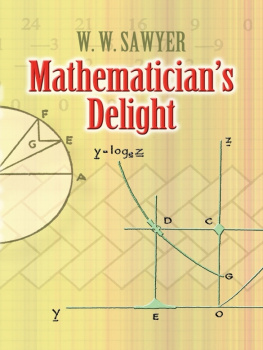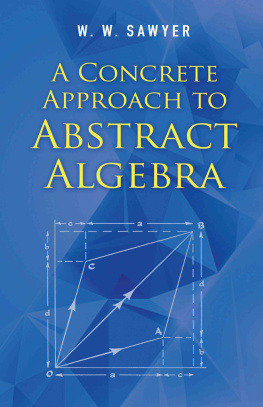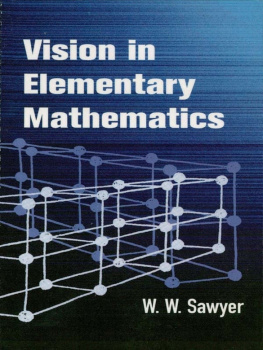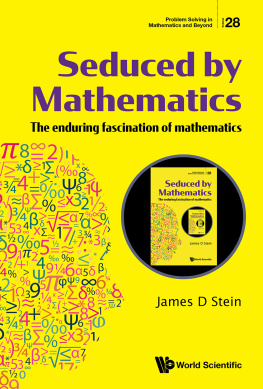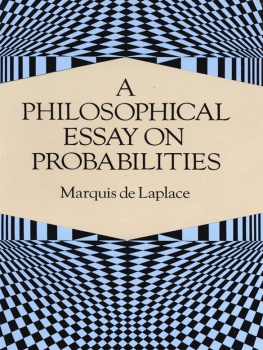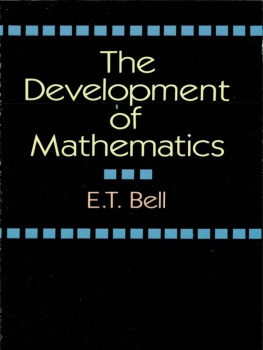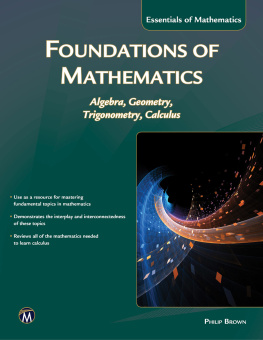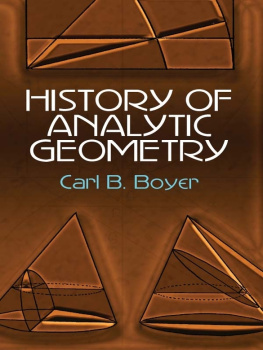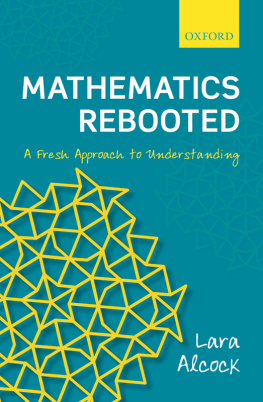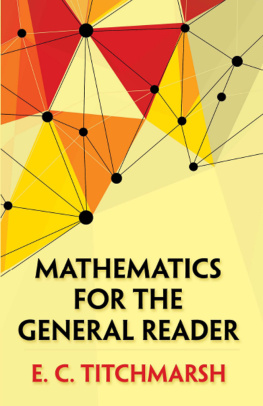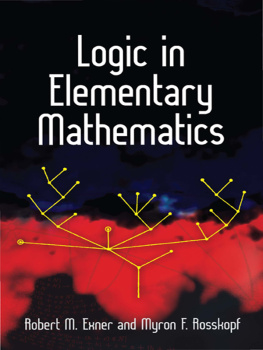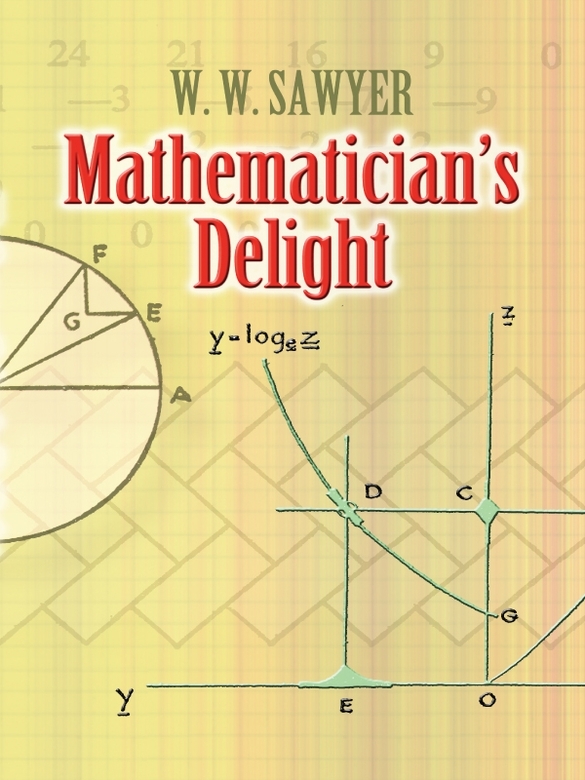The greatest evil is fear.
THE main object of this book is to dispel the fear of mathematics. Many people regard mathematicians as a race apart, possessed of almost supernatural powers. While this is very flattering for successful mathematicians, it is very bad for those who, for one reason or another, are attempting to learn the subject.
Very many students feel that they will never be able to understand mathematics, but that they may learn enough to fool examiners into thinking they do. They are like a messenger who has to repeat a sentence in a language of which he is ignorant - full of anxiety to get the message delivered before memory fails, capable of making the most absurd mistakes in consequence.
It is clear that such study is a waste of time. Mathematical thinking is a tool. There is no point in acquiring it unless you mean to use it. It would be far better to spend time in physical exercise, which would at least promote health of body.
Further, it is extremely bad for human beings to acquire the habit of cowardice in any field. The ideal of mental health is to be ready to face any problem which life may bring - not to rush hastily, with averted eyes, past places where difficulties are found.
Why should such fear of mathematics be felt? Does it lie in the nature of the subject itself? Are great mathematicians essentially different from other people? Or does the fault lie mainly in the methods by which it is taught?
Quite certainly the cause does not lie in the nature of the subject itself. The most convincing proof of this is the fact that people in their everyday occupations when they are making something do, as a matter of fact, reason along lines which are essentially the same as those used in mathematics: but they are unconscious of this fact, and would be appalled if anyone suggested that they should take a course in mathematics. Illustrations of this will be given later.
The fear of mathematics is a tradition handed down from days when the majority of teachers knew little about human nature, and nothing at all about the nature of mathematics itself. What they did teach was an imitation.
Imitation Subjects
Nearly every subject has a shadow, or imitation. It would, I suppose, be quite possible to teach a deaf and dumb child to play the piano. When it played a wrong note, it would see the frown of its teacher, and try again. But it would obviously have no idea of what it was doing, or why anyone should devote hours to such an extraordinary exercise. It would have learnt an imitation of music. And it would fear the piano exactly as most students fear what is supposed to be mathematics.
What is true of music is also true of other subjects. One can learn imitation history - kings and dates, but not the slightest idea of the motives behind it all ; imitation literature stacks of notes of Shakespeares phrases, and a complete destruction of the power to enjoy Shakespeare. Two students of law once provided a good illustration: one learnt by heart long lists of clauses; the other imagined himself to be a farmer, with wife and children, and he related everything to this farm. If he had to draw up a will, he would say, I must not forget to provide for Minnies education, and something will have to be arranged about that mortgage. One moved in a world of half-meaningless words; the other lived in the world of real things.
The danger of parrot-learning is illustrated by the famous howler, The abdomen contains the stomach and the bowels, which are A, E, I, O and U. What image was in the mind of the child who wrote this? Large metal letters in the intestines? Or no image at all? Probably it had heard so many incomprehensible statements from the teacher, that the bowels being A, E, I, O and U seemed no more mysterious than other things heard in school.
A large proportion of examination papers contain mathematical errors which are at least as absurd as this howler, and the reason is the same words which convey no picture, the lack of realistic thinking.
Parrot-learning always involves this danger. The deaf child at the piano, whatever discord it may produce, remains unaware of it. Real education makes howlers impossible, but this is the least of its advantages. Much more important is the saving of unnecessary strain, the achievement of security and confidence in mind. It is far easier to learn the real subject properly, than to learn the imitation badly. And the real subject is interesting. So long as a subject seems dull, you can be sure that you are approaching it from the wrong angle. All discoveries, all great achievements, have been made by men who delighted in their work. And these men were normal, they were no freaks or high-brows. Edison felt compelled to make scientific experiments in just the same way that other boys feel compelled to mess about with motor bicycles or to make wireless sets. It is easy to see this in the case of great scientists, great engineers, great explorers. But it is equally true of all other subjects.
To master anything from football to relativity requires effort. But it does not require unpleasant effort, drudgery. The main task of any teacher is to make a subject interesting. If a child left school at ten, knowing nothing of detailed information, but knowing the pleasure that comes from agreeable music, from reading, from making things, from finding things out, it would be better off than a man who left university at twenty-two, full of facts but without any desire to inquire further into such dry domains. Right at the beginning of any course there should be painted a vivid picture of the benefits that can be expected from mastering the subject, and at every step there should be some appeal to curiosity or to interest which will make that step worth while.
Bad teaching is almost entirely responsible for the dislike which is shown in such words as high-brow. Children want to know things, they want to do things. Teachers do not have to put life into them: the life is there, waiting for an outlet. All that is needed is to preserve and to direct its flow.
Too often, unfortunately, teaching seems to proceed on the philosophy that adults have to do dull jobs, and that children should get used to dull work as quickly as possible. The result is an entirely justified hatred and contempt for all kinds of learning and intellectual life.
Many members of the teaching profession are already in revolt against the tradition of dull education. Some excellent teaching has been heard over the wireless. The same ideas, the same methods are being developed independently in all parts of the country. No claim for originality is therefore made in respect of this book. It is no more than an individual expression of a feeling shared by thousands.
In the following chapters I shall try to show what mathematics is about, how mathematicians think, when mathematics can be of some use. In such a short space it is impossible to go into details. If you want to master any special department of mathematics, you will certainly need text-books. But most text-books contain vast masses of information, the object of which is not always obvious. It would be useless to burden your memory with all this purposeless information. It would be like having a hammer so heavy that you could not lift it. Mathematics is like a chest of tools: before studying the tools in detail, a good workman should know the object of each, when it is used, how it is used, what it is used for.

